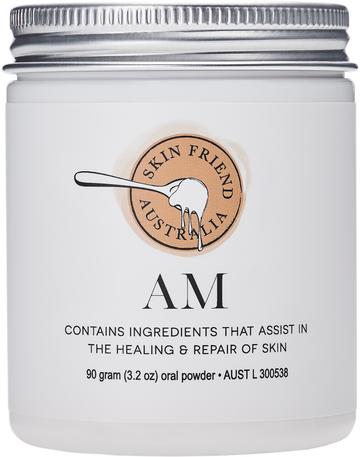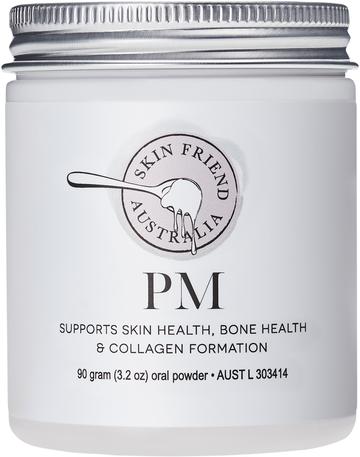Magnesium supplementation is important as it can decrease food chemical intolerances when combined with taurine, calcium carbonate and vitamin B6. Magnesium plays a role in the metabolism of calcium. The ability for your body to absorb magnesium naturally declines as you age and magnesium deficiency is common. It can be caused by diarrhoea, poor diet, low protein diets (less than 30 g/1 oz per day), fat malabsorption, frequent alcohol consumption, and frequent use of antibiotics or diuretics.
Nutrients for depression
In order for your body to produce the feel-good chemicals serotonin and dopamine, your body needs taurine and co-factors including vitamin B6, vitamin B12, folate, magnesium and zinc. Omega-3 is also important for healthy brain function (see omega-3 information on p. 64 in the Eczema Detox Book).
Magnesium: dosages and food sources
| Magnesium (also known as) |
Supplement dosages (milligrams per day) |
Eczema-friendly food sources |
|
Magnesium carbonate (good, highly alkaline) |
Infants (AI) 30–75 mg from breastmilk or hypoallergenic/dairy-free infant formula Children + teens 1–4 years RDI: 80 mg (40– 65 mg from supplement) Adults RDI: 310–400 mg |
1 cup soybeans: 148 mg 1 cup black beans: 120 mg 1⁄4 cup raw cashews: 117 mg 1 cup cooked spelt: 95 mg 1 cup navy beans: 96.5 mg 1 cup buckwheat: 85.7 mg 60 g (21⁄2 oz) raw oats: 80 mg 1 cup cooked brown rice: 83 mg 1⁄3 cup barley: 81 mg 1 fillet (127 g) flathead/flounder: 74 mg 1 cup cooked dried beans: 75 mg 100 g (31⁄2 oz) canned sardines: 60 mg^ 1 cup sweet potato: 54 mg^ fish (average serving): 26–50 mg 1⁄2 cup tofu: 47 mg 1⁄2 papaya: 26 mg^ 1 cup mashed potato: 38 mg 1 cup Brussels sprouts: 31 mg 1 cup boiled skinless potatoes: 31 mg chicken or red meat (average serving): 30 mg 1 cup mung bean sprouts: 22 mg 1⁄2 cup leeks: 7 mg 1⁄2 cup celery: 5 mg |
*Plus consume magnesium from food sources
AI: Adequate Intake as per Australian Government guidelines.
RDI: Recommended Daily Intake from foods as per Australian Government guidelines shown on the table as the highest dose. The lower range is the recommended dose in supplements as you should also consume magnesium via a healthy diet.
^Contains salicylates (not suitable during weeks 1–3 of the FID Program).
Notes:
- Take magnesium more than 2 hours apart from medications.
- Take magnesium along with vitamin B6, taurine and calcium carbonate. Magnesium is found in both our Skin Friend AM and Skin Friend PM products
Products
At Eczema Life, we recommend nutritionist Karen Fischer's low food chemical program (The Eczema Detox) along with additive-free supplements for skin health and wellbeing. Click on the images to view more details:




